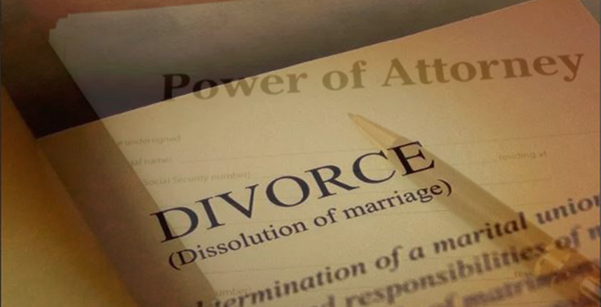India is a culturally diverse country where solemnization and termination of marriage is regulated not by one but many statutes. Different religions in India hold different statutory provisions regarding marriage and its dissolution. The Hindu marriage Act oversees the laws regarding Hindu marriages and their dissolution.
While deciding to separate from your spouse can be a heartbreaking decision, it gets even tough when you are not able to file such an application to the appropriate court due to physical jurisdictional barriers. A lot of couples, after their marriage move overseas, where culture and laws are entirely different. Every country and their culture have different laws regarding different issues, sometimes, what’s prohibited by law or customs in India might not have same effect upon the laws abroad. Due to this, matters such as matrimonial and family issues among Indian citizens in foreign land remain unregulated. Often, matters of cruelty and adultery are reported being inflicted upon Indian Citizens by their spouses abroad.
At this point due to geographical differences, it becomes extremely difficult to approach the courts in India.
In a recent trend, it has been observed that the courts have been accepting pleas from persons against their spouses through Power of attorney.
What is a power of attorney?
Power of attorney basically means when a person approves someone else on their behalf to initiate or continue any civil legal proceedings in the court of law. Power of attorneys are of two types-
Nondurable Power of Attorney: When an agent is given limited authority such as preparation or reviewing of documents or few appearances in court, etc consists of nondurable power of attorney. This kind of power of attorney is temporary and can be ended by the principal at any point of time.
Durable Power of Attorney: Durable is a more permanent type of power of attorney, where the agent gets to act upon important issues when the principal has become incapacitated. Th agent is the required to act in accordance with the principal’s interests
How can I seek divorce?
Divorce as per Hindu law can take place through- mutual or contested divorce.
- Mutual Divorce: Divorce by mutual consent, basically means a divorce not involving the courtroom, where both the husband and wife mutually decide to separate and sign a joint petition whereby stating that they have bene living separately for more than a year.
While applying for a mutual divorce, no petition within the first year of marriage can be accepted. After submitting the petition for divorce, the couple has to be present in front of the judge, for the judge to evaluate the mutual divorce proceedings. In this entire process, a cooling-off period takes place which was mandatory earlier, but now, as per the discretion of the judge, it can be waived off.
In India, divorce by mutual consent is the fastest, respectful and dignified way to get separation as in this case both the partners who believe that they cannot live together harmoniously and voluntarily agree to all terms and conditions of their joint petition to separate legally. Such a joint petition contains matters of maintenance, custody of child, division of assets, shelter of the spouse etc.
- Contested Divorce: A contested divorce is the type of divorce where one partner applies for the divorce and is ready to separate, while the other partner does not want wish to separate. In such a case, the divorce proceedings are heard in front of a judge and matters such as property dispute, child custody, maintenance and alimony are decided not by the partners but by the judge.
A contested divorce can be filed only on certain grounds which are mentioned under the law. Such grounds are – cruelty, adultery, dissertation, conversion, mental disorder, communicable general diseases, etc.

How can I seek divorce through power of attorney?
In case of filing for a divorce, when one of the parties in a marital relationship, cannot physically appear or file their case in the family court, can appoint an agent who shall act on their behalf as the holder of the person’s power of attorney. The power of attorney holder takes care of proceedings on their behalf and works in the interest of that person.
Before being able to file a divorce case on behalf of someone else, a person or agent has to become the power of attorney holder. The steps to become the holder are-
- When the person is currently in India but wanting to leave the Country- In such a case, the below mentioned steps must be followed to attain a power of attorney.
- Filing for Power of Attorney: If a person while willing to appoint a power of attorney is present in the country, then they may discuss and note down all the points of negotiation of the power of attorney on a stamp paper.
- Visiting the Registrar Office: Apart from noting down points of negotiations, the principal, agent and two witnesses must visit the registrar or sub-registrar office.
- Attaching supporting documents: At the registrar office, along with witness signatures, supporting documents must be attached with the power of attorney documents.
- Remaining Formalities: The last step towards appointment of power of attorney is when all the remaining formalities are completed at the registrar office and one copy is issues to the parties while one copy is retained by the registrar.
- When the person is not present in India-
If the person is not present physically in India, then the power of attorney has to be presented to the Indian Embassy in your residing country. The Power of Attorney holder has to visit the registrar or sub- registrar’s office with the necessary documents, which is then stamped and registered.
How can GS Bagga & Associates help you?
Greetings! The offices of G.S. Bagga & Associates have been experienced in family law and matrimonial issues for over 7 years now. If you’ve found the above information about power of attorney satisfying, you can get in touch with us and can book a free consultation. You can also contact us for any other or more information. We would love to support you with our legal expertise in the matter. Feel free to contact us, anytime.


